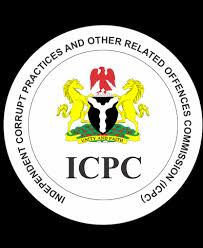The Independent Corrupt Practices and Other Related Offences Commission (ICPC) has successfully obtained a 7-year conviction of Aso Adasa Morrison and Frank Biobarakuma for their involvement in crude oil racketeering. This significant achievement marks a major step in the fight against corruption in Nigeria’s oil industry.
According to ICPC spokesperson, Azuka Ogugua, the suspects were initially arraigned in March 2013 before Hon. Justice B. A. Georgewill of Rivers State High Court 16 on a 17-count charge related to conspiracy, forgery, and obtaining money under false pretenses.
During the trial, the court heard compelling evidence of how the convicts, along with accomplices who are still at large, fraudulently obtained a total sum of $662,300 from Mr. Jung Yongmin, a South Korean national. This illicit act took place between March 2012 and February 2013 in Port Harcourt, where the convicts deceived Mr. Jung into believing that they were selling Nigerian crude oil to him.
The actions of the convicts were in clear violation of Sections 1 and 8 of the Advanced Fee Fraud and Other Related Offences Act, 2004, as well as Section 467 of the Criminal Code Act, 2004.
Initially pleading “not guilty” to the charges, the convicts embarked on a lengthy legal battle. However, in a recent turn of events, Justice S. C. Amadi, the Chief Judge of Rivers State who took over the case after Justice Georgewill’s elevation to the Court of Appeal, found the convicts guilty on all 17 counts.
During the allocutus, or plea for leniency, the defense counsel argued that the convicts were first-time offenders with dependents to support, requesting a non-custodial sentence. Unfortunately for the convicts, their plea was not granted.
In delivering the judgment, Justice Amadi sentenced the duo to 7 years in prison for counts 5 and 6, 3 years in prison for counts 1-4 and 7-17, with no option of a fine. These sentences will run concurrently.
Furthermore, the court directed that the South Korean Embassy, the petitioners in this case, be notified of the judgment, as it is a direct outcome of their petition to the ICPC. This serves as a testament to the effectiveness of reporting corruption and collaborating with relevant authorities to ensure justice is served.
The ICPC’s successful prosecution of this crude oil racketeering case sends a strong message that individuals involved in such illicit activities will face severe consequences. It also highlights the commitment of the Nigerian government and its anti-corruption agencies in combating corruption and promoting transparency in the oil sector.
